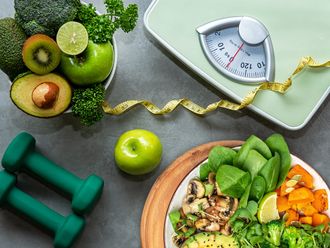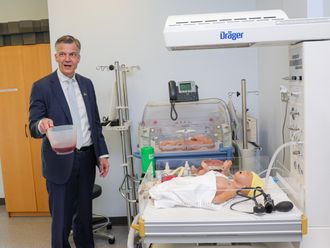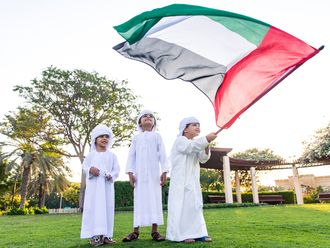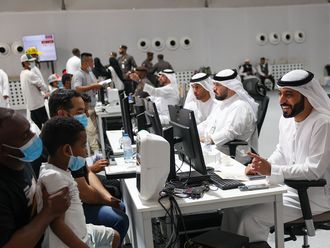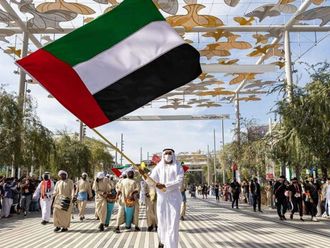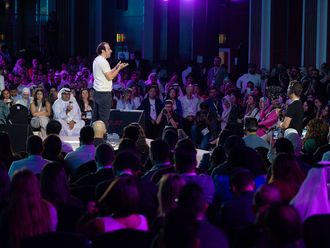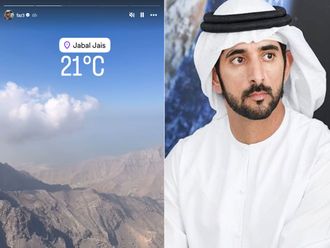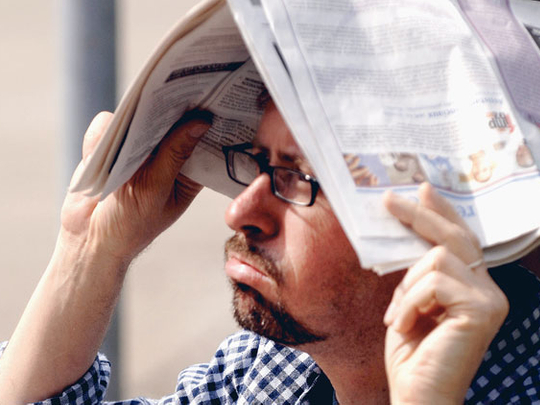
Dubai Asians are more worried about exposure to the sun than Caucasians who disregard warnings and are at a higher risk of getting skin cancer, a leading dermatologist said.
But the fear of exposure to sun among Asians is mainly due to skin colour consciousness and who worry they will turn darker, said Dr Ikramullah Al Nasir, specialist dermatologist and medical director of Dermacare Skin Centre.
He said the skin type of Asians makes them tan easily but their skin will rarely burn.
"It's common to see Sri Lankan or Filipinas using umbrellas to shield themselves from the sun." In contrast, Caucasians walk to the beach with minimal clothing and those with blond hair and blue eyes are more prone to skin cancer, the doctor warned.
The dermatologist said after observing the lifestyle of the population in the UAE, he has noticed that there was no proper guidance and Caucasians specially tend to get carried away with the sunny holiday concept.
"In their excitement [over the sunny weather] they over-expose their skin to the sun."
He said in the past couple of years there has been a significant number of skin cancer cases.
He said awareness about the harmful effects of the sun should start from school. "There is an interesting contrast here in the GCC where Asian parents are more interested in protecting their children from the sun than Caucasian parents," he said.
"Asian children are probably over-protected from the sun to the point that they might end up with Vitamin D deficiency," said Dr Al Nasir.
Hitting out at companies marketing skin creams as anti-ageing or skin-whiteners, he said there was a lack of skin health protection bodies in the Middle East and the Subcontinent. "Product manufacturers should be ethically and morally responsible and not play with consumer's financial and physical health," he said.
Avoiding sun
The time to avoid the sun in the GCC region is between 10am to 4pm during the summer. In winter it is best to avoid exposure between 11am to 3pm. He said when it is cloudy people are lulled into thinking it is cooler and safe, but the ultra-violet rays penetrate through the clouds, he noted.
Other recommendations are not to expose yourself to the sun for a long time in one go. "Take a break and reapply the sunscreen if taking part in water sports. The dermatologist said the sun blocks with SPF (Sun Protection Factor) 30 are enough if you are going out for about an hour. SPF 40 to 60 should be applied for longer exposures.
But he warned that sun blocks with SPF 100 should not be used believing it offers 100 per cent protection. "Research has shown that between the application of SPF 30 and 100, the protection margin doesn't improve more than 15 per cent.
"Although the number of the SPF is tripled, it does not mean that your protection has been tripled," he said.
Tips on skin care
What makes your skin age faster:
- Drinking too much
- Smoking
- Sweets and sugary foods
Protect your skin by:
- Using moisturisers regularly
- Washing face with mild soap
- Wearing full-sleeved clothing
- Wearing a hat
- Drinking adequate water
Caution:
- Do not take children to sea for a long time. The open sea multiplies your risk of damage to the skin due to the reflection of rays from the water's surface and the sand particles. It multiplies the direct exposure.
- Get regular skin check ups every year. The fastest killing cancer is mole-cancer and doctors call on insurance companies to cover skin health issues too.
Guide: Precaution
Which skin types burn easily
Type 1: Never tans but always burns. Most at risk are fair skinned, blonde hair, blue eyed people.
Type 2: Occasionally tans and mostly burns — Scandinavian, British and German skin
Type 3: Sometimes tans and usually burns — rest of Western Europeans with a mix of Eastern Europeans
Type 4: Usually tans and occasionally burn — Fair Mediterranean skin, but not at a very high risk of developing skin cancer
Type 5: Mostly tans and very rarely burns — Sub continental Asian and Far Eastern
Type 6: Never tans and never burns — African skin



